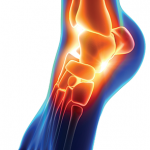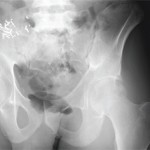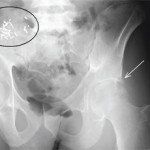Level 3 Visit with Primary Diagnosis of Osteoarthritis A 36-year-old patient presents with unilateral primary osteoarthritis of the left hip. She reports her groin pain as 7 on a scale of 1–10. When she tries to straighten her left leg, she experiences increased groin pain. She is currently taking over-the-counter medication to relieve the pain,…
Rheumatology Coding Corner Answer: Level 3 Visit with Primary Diagnosis of Osteoarthritis
CPT codes: 99213 Diagnosis Codes: ICD-9: 715.15, 278.01 ICD-10: M16.12, E66.01, Z68.41 This encounter is coded as 99213 as follows: History—The history of present illness was extended. The review of systems was comprehensive, and no past family social history was documented. This makes the history level expanded problem focused. Examination—There were eight systems examined. This…

Juvenile Idiopathic Arthritis: Parents Discuss Challenges, Support Rheumatologists Can Offer
One parent wishes that she could have consulted a crystal ball at the beginning of her daughter’s illness to have “some kind of idea of what we were in for. There are so many stages of letting go of the idea of what your little kid is in for in life, what they are going…

Ankle Replacement: Are Patients with Ankle Arthritis Good Candidates?
Ankle arthritis is a debilitating condition that leaves many patients in severe pain and greatly limits their activities. Until recently, the standard treatment for bone-on-bone ankle pain has been ankle fusion, or arthrodesis, in which surgeons literally fuse the bones of the ankle joint together. However, in the past few years, total ankle replacement surgery,…
New Recommendations Support Effective Use of Telemedicine in Primary Care
NEW YORK (Reuters Health)—The American College of Physicians (ACP) has issued a baker’s dozen of recommendations intended to guide the effective use of telemedicine in primary care settings. “The recommendations balance the potential benefits and expanded use of telemedicine with the importance of maintaining the patient-physician relationship and patient safety,” Hilary Daniel from American College…

RA Diagnosis Uses Lab Tests, Clinical Insight to Rule Out Lyme
What struck me first as I walked by the exam room where Lynn P. sat was the swelling in her fingers and wrists. The bloated hands rested unnaturally on her thighs, palms up, fingers slightly flexed. Her strawberry-blond curls were offset by a high-neck, loose-fitting, burgundy sweater. Her pale skin matched her trim slacks. She had…

Diagnostic Imaging in Patient with Left Hip Pain: History
Editor’s note: In this recurring feature, we first present a series of images (this page) for your review, and then a brief discussion of the findings and diagnosis (p. 63). Before you turn to the discussion, examine these images carefully and draw your own conclusions. History For the discussion, click here. A 55-year-old man on…

Diagnostic Imaging in Patient with Left Hip Pain: Findings
View the question. Findings/Diagnosis The AP radiograph of the left hip (see Figure 1) shows periarticular, well-defined erosions of the left hip (white arrow) without joint space narrowing or osteophytes. There is no fracture. There are surgical clips and a calcified mass in the right hemipelvis (black ellipsis), representing a failed renal transplant. The coronal STIR…

EULAR 2015: RA Research Shows Imperfect Guidelines, Suggests Strategies with Biologics
ROME, Italy—Even with classification criteria that have been updated and refined over time, rheumatoid arthritis is still a diagnosis that ultimately has to be made with clinical judgment, said Ronald van Vollenhoven, MD, PhD, professor of medicine and chief of clinical therapy research in inflammatory diseases at the Karolinska University in Sweden. His remarks came…

Heart Rate Variability to Predict Treatment Response in Patients with RA
A growing understanding of the immunomodulatory effect of the autonomic nervous system (ANS) is edging closer to having clinical applications that could one day benefit patients with rheumatoid arthritis (RA). Researchers pursuing this as an alternative path to biomarkers are investigating whether autonomic status can be used to predict response to therapy. Seattle-area rheumatologist and…
- « Previous Page
- 1
- …
- 44
- 45
- 46
- 47
- 48
- …
- 87
- Next Page »